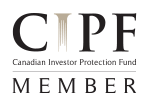Moving to the U.S. from Canada: Five Things to Consider Before Moving
FIVE THINGS TO KNOW BEFORE MOVING FROM CANADA TO THE U.S.
Planning a move south of the border? The charms of the United States are obvious: career opportunities, booming manufacturing industry, top-ranked universities and warmer climate compared to Canada’s. No matter your reasons, picking up and moving to the U.S. from Canada can be an exciting journey that opens up a world of possibilities. But navigating the complexities of such a big move brings can be daunting without proper planning or the support of a trusted cross-border financial advisor.
At Marnoa Private Wealth, our cross-border financial advisors are dually licensed in Canada and the U.S. We offer cross-border investment and financial planning services to individuals and families whose financial concerns lie on both sides of the Canada and U.S. border.
Explore our cross-border services
Simplify your cross-border investments
WHAT DO I NEED TO CONSIDER WHEN MOVING?
As you pursue your dream in the United States and look forward to starting a new, rewarding life south of the border, keep in mind that effective planning is one of the keys. The old adage applies: “If you fail to plan, you are planning to fail.”
Consider these five aspects to ensure your relocation to the United States is both seamless and tax efficient.
Start Planning Your Move as Early as Possible
It’s never too early to get the ball rolling on your move to the U.S. Start with organizing your paperwork, getting your visa approved and researching available healthcare options in the U.S. Decide if you want to purchase a private health insurance plan prior to leaving Canada in case you need medical care before your U.S. healthcare plan kicks in.
Set Up Your U.S. Banking Account
Before you leave Canada, you’ll need to set up a U.S.-based bank account, so you can easily move money across the border, receive your paycheck if you’re moving for work, and pay for U.S. purchases without incurring foreign transaction fees. As well, consider getting a U.S.-based credit card, so you establish a credit rating in that country.
Request a Social Security Number
Before you arrive in the U.S., remember to apply for your Social Security number (SSN) if you are legally permitted to work in the U.S. If not, apply for an Individual Taxpayer Identification Number (ITIN) for you and all family members, which you will need to file taxes, apply for a loan and claim government benefits. You can apply online from the U.S. and then go to a local Social Security office to provide your documentation.
Understand the Tax Implications of Your Move
While the U.S. and Canada share more than just a border, there are stark differences between the two. But perhaps nowhere are those differences more complex than Canadian and U.S. tax laws and investment and securities regulations.
For example, the U.S. doesn’t recognize Canada’s tax exemptions. If you own a primary residence in Canada and decide to sell it, you may have to pay taxes in the U.S. On the other hand, if you buy a primary residence in the U.S. and decide to sell it later, only the first US$250,000 in capital gains may be tax exempt if you’re single or US$500,000 if you’re married and filing jointly.
Manage Your Investments with a Cross-border Financial Advisor
A big difference between Canada and the U.S. lies in investment portfolios and how they are taxed.
Pitfalls often emerge when Canadians learn the hard way that they can’t transfer their securities, such as Canadian mutual funds, to a U.S. financial institution.
Further complicating your financial picture could be the fact that some Canadian investments, such as Canadian exchange-traded funds (ETFs), may create punitive U.S. tax consequences or tax filing complexities because the Internal Revenue Service (IRS) may view those funds or accounts as passive foreign investment companies (PFICs).
Considering a move to the U.S. from Canada?
Our cross-border financial advisors are experienced in helping Canadians and Americans with investment and retirement accounts on both sides of the border.
Raymond James (USA) Ltd. All rights reserved. Raymond James (USA) Ltd. (RJLU) advisors may only conduct business with residents of the states and/or jurisdictions for which they are properly registered. Therefore, a response to a request for information may be delayed. Please note that not all of the investments and services mentioned are available in every state. Investors outside of the United States are subject to securities and tax regulations within their applicable jurisdictions that are not addressed on this site. Contact your local Raymond James office for information and availability. This website may provide links to other Internet sites for the convenience of users. RJLU is not responsible for the availability or content of these external sites, nor does RJLU endorse, warrant or guarantee the products, services or information described or offered at these other Internet sites. Users cannot assume that the external sites will abide by the same Privacy Policy that RJLU adheres to. Investing in foreign securities involves risks, such as currency fluctuation, political risk, economic changes, and market risks.





